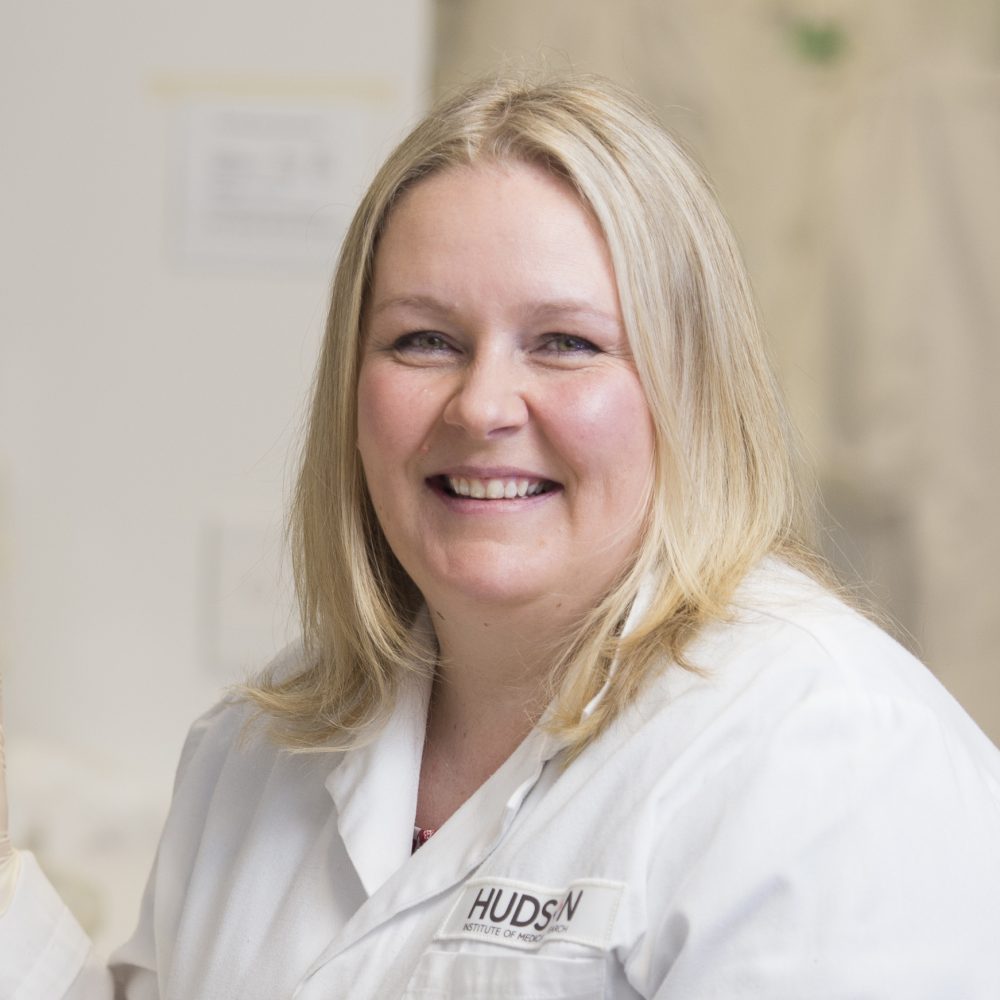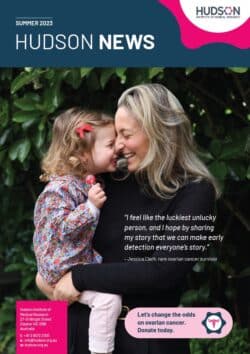Associate Professor Kate Lawlor, ARC Future Fellow
Inflammation is at the heart of numerous diseases and new research has found that the timing of cell death is crucial to this process. My research uses host cell factor targeting to combat difficult-to-treat infections and the growing threat of antibiotic-resistance.

Areas of interest
Inflammatory bowel disease (IBD) Influenza Pneumonia
Research group
Cell Death and Inflammatory Signalling
Biography
Associate Professor Kate Lawlor heads the Cell Death and Inflammatory Signalling Group within the Centre for Innate Immunity and Infectious Diseases at the Hudson Institute. A/Prof Lawlor received her PhD in Medical Biology in 2004 at the Walter and Eliza Hall Institute of Medical Research and The University of Melbourne. After being awarded an NHMRC CJ Martin Overseas Biomedical Fellowship, she completed postdoctoral research at the Cambridge Institute for Medical Research, University of Cambridge, UK and the Walter and Eliza Hall Institute, most recently in the laboratory of Dr James Vince. During this time, she established expertise in the molecular and cellular dissection of inflammatory signalling pathways, and the translation of these findings in vivo using models of autoimmune, inflammatory and infectious diseases. Since she was recruited to her current position in 2018, A/Prof Lawlor has been awarded an ARC Future Fellowship (2020-23) and NHMRC funding (CIC 2018-20, CIA 2019-21, CIA 2020-22).
Her recent work has transformed our understanding of programmed cell death in the context of inflammation, by revealing how distinct cell death pathways can activate pattern recognition receptors, called inflammasomes, to promote inflammation. This work has resulted in numerous publications in prestigious journals, including Nature, Nature Immunology, Nature Microbiology, Immunity, Cell, Nature Communications, Cell Reports, EMBO Reports and PNAS. A/Prof Lawlor is also actively engaged with industry, acting as a scientific consultant for a number of companies, including CSL, and is an inventor on a patent for an anti-inflammatory therapy, now under licence and in phase I clinical trials. She is currently a Deputy Editor for Immunology and Cell Biology.
Student opportunities

Publication highlights



